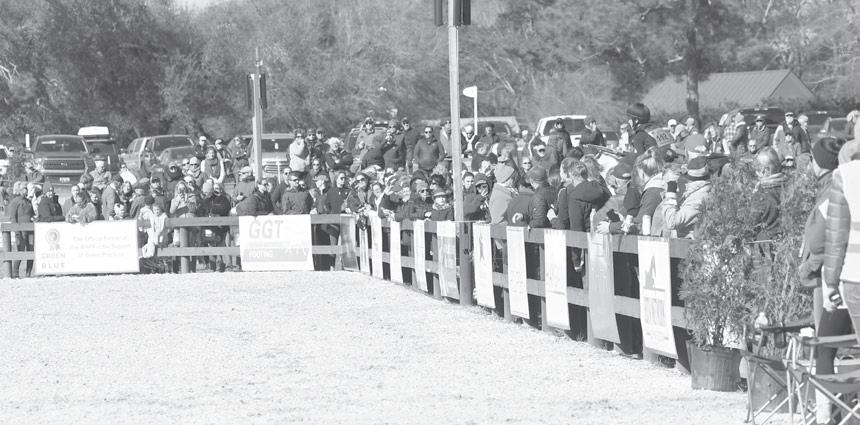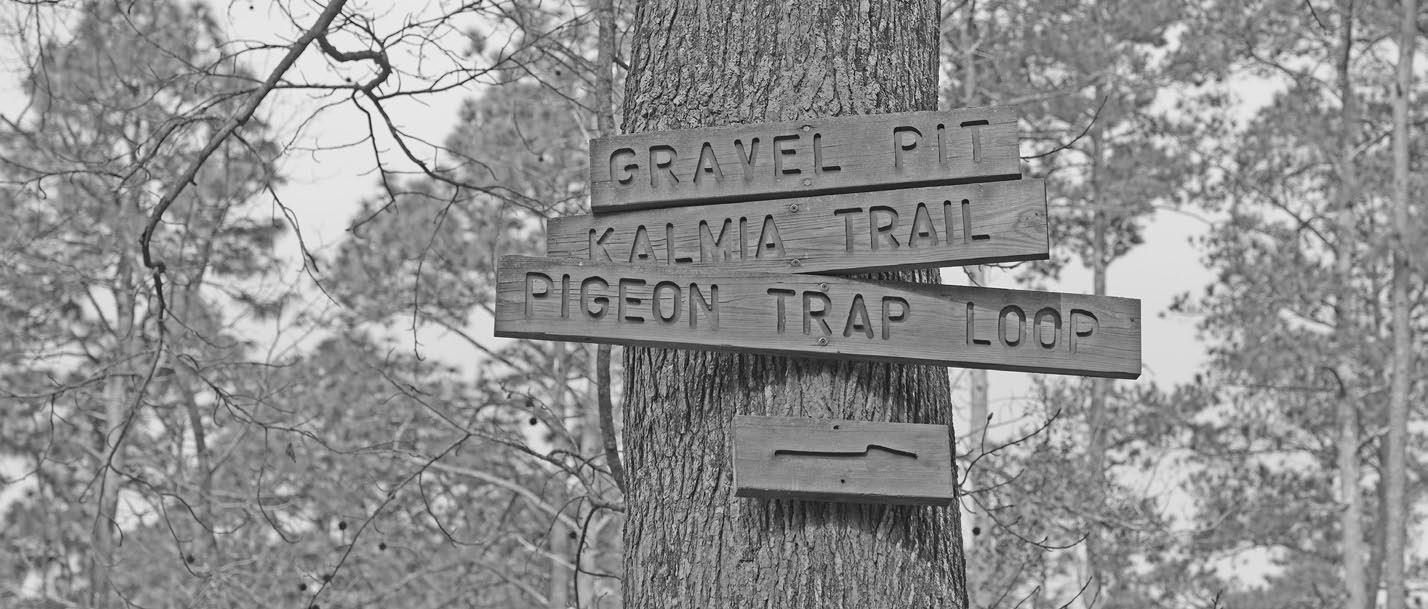
8 minute read
Resources for Horsemen
Resources For Horsemen
Preparing for Troubled Times
Advertisement
By Pam Gleason
The global pandemic caused by the COVID-19 virus is upending plans and businesses everywhere. There are at least two looming disasters: the health crisis caused by the virus itself, and the economic crisis caused by the global shutdown of businesses. While some parts of the country are already feeling the effects of both of these things, right now in South Carolina, where the virus has not yet reached unbearable levels, the economic crisis is the most pressing problem.
Depending on how well our area prepares, we may or may not be able to avert a full blown health disaster. The virus is currently spreading throughout the Central Savannah River Area, and it is projected to reach peak levels here sometime in the month of April.
Things are likely to get worse before they get better, in health and in economics. Many horsemen will find themselves in need of help, whether from funding to keep a horse business afloat, from temporary assistance to continue to feed their horses, or from extra help caring for animals in case their owner is incapacitated.
Fortunately, there are some new resources available, including various components of the massive CARE Act passed by Congress in March. There are also private grants and loans specifically designed for horsemen. Finally, there are many places to find information about preparing for health and economic crises, with more resources being added every day.
Biosecurity
The first thing a horseperson can do is to help contain the virus itself by adhering to CDC guidelines on sanitation and social distancing. Many horse people are already introverts, and for those who have their horses at home, being asked to stay there and not go out and not come near anyone is more a relief than a burden. However, those who keep their horses at boarding stables and those who make a living dealing with the public in the horse industry don’t have the luxury of enjoying this kind of officially sanctioned solitude.
Many horse people have never thought about biosecurity issues before, so this is an excellent time to learn something new. The first piece of good news is that, as far as anyone knows, horses cannot catch COVID-19, nor are they vectors of the disease, likely to spread it to their owners or other animals. This is a new disease of course, and information could come in that will contradict this assertion. After all, when the virus first hit our shores, experts assured the public that dogs and cats could not suffer from it either, but that has proven not to be true – at least a few cats, two dogs, a tiger and several zoo animals have tested positive as of this writing, presumably infected by their owners and caretakers. There is indeed an equine corona virus that causes gastrointestinal issues in horses, but the equine virus is not the same as the one that is behind the COVID-19 pandemic, and there is currently no reason to worry about new horse health issues.
However, a public stable can definitely be a place where humans can transmit respiratory viruses to one another. For this reason, stables that are frequented by more than one person need to establish strict safety and hygiene protocols that include handwashing, careful sanitation of any frequently touched surfaces or shared equipment (including halters, lead ropes and cross ties) and adequate social distancing.
Many states in harder hit areas have already shut down boarding barns, allowing access solely to people who need to be there. Others have done such things as creating schedules so that boarders or caretakers do not come to the stable at the same time. There are not yet any specific recommendations for equestrian facilities from South Carolina horse groups, but equestrian organizations in other states have come up with comprehensive best practices guidelines.
The Kentucky Horse Council, for instance has a document that recommends such things as ensuring that all paperwork and payments are transferred electronically, because, according to them, the virus has been shown to be present on papers. Other organizations, such as the American Association of Equine Practitioners, have drawn up recommendations for the equine industry based on those created by the CDC. (For more information: kentuckyhorse.org; aaep.org; cdc.gov.)
Business Help
Equestrian businesses, including sole proprietorships, are eligible for government relief through the CARES Act. However, much of the paperwork that needs to be filled out in order to apply for the programs is confusing, and none of it is tailored to equestrian businesses. This does not mean that equestrian businesses will not be able to receive assistance, but it does mean that it might be more difficult to negotiate various hurdles between your business and financial relief.
The main difficulty is that the equestrian industry, though often classified as agriculture, is really more like a service business. Programs created for agricultural businesses generally assume that the goal is to create something to eat, not an animal to ride, drive and compete on, so while horse businesses often don’t qualify for farm aid, they might not qualify for non farm aid either. For instance, one program that many small businesses are applying to is the Economic Injury Disaster Loans (EIDL) program, which provides a loan of up to $2 million for small businesses affected by the pandemic. However, this program specifically excludes agricultural operations, on the theory that the USDA already provides grants and loans to farmers during emergency situations.
Some business leaders are counseling horsemen to fill out an EIDL application anyway. This is a tricky situation, since the application asks you to certify that you are not an agricultural operation, and will not let you continue the application unless you do so. Some event organizers and providers of riding lessons and training services have applied as teachers or coaches. But will the applications get automatically thrown out if you apply under your farm name, or it is revealed that you have not paid sales tax on your tractor because it is used for agriculture? No one has a definitive answer yet.
Commercial equestrian operations can apply for the Paycheck Protection Program, which authorizes loans for small businesses, which may be forgivable as long as the money is used to cover payroll and certain other expenditures. Independent contractors can also apply. These loans are administered through existing Small Business Administration lenders, including our local banks such as First Citizens and Security Federal. Businesses that already have loans with an SBA accredited institution will probably find it easier to qualify for these loans than businesses that do not.
The City of Aiken also has a revolving loan fund for businesses located within city limits, with up to $10,000 per business available at an interest rate of 2%. More information about this loan fund and other small business resources can be found on the Greater Aiken Chamber of Commerce website which has a new “COVID-19 section” linked to its front page. (aikenchamber.net)
Financial Relief for Horse Owners
Some horse owners are already having trouble feeding their animals, and many more are worried that they will be in trouble soon. What about them?
This is, of course, a difficult question. Jim Rhodes at Aiken Equine Rescue says that he has already started fielding increased calls and emails from people who are worried about being able to buy hay and supplies, either now or in the future. They need help, or they need to find someone else to take their animals.
This is not, of course, a good time to rehome a horse. Especially if you are talking about a horse that is not worth a lot of money, the market is going to be extremely weak. Rescues such as Aiken Equine Rescue are generally not going to be able to take your horse, since, in a time of plummeting donation revenue, they are concerned about feeding the animals they already have, and are not likely to take on any additional animals, even if they do have the space.
One big danger for horses in times like these is that people who collect low-priced animals in order to ship them to Canada or Mexico for slaughter will be out in force, looking for people who need to rehome their horses. Few meat buyers will admit that is what they are doing, and some might even appear to be providing the perfect home, so that you happily give away your horse for free. To ensure that a horse really is going to a good home, it’s never a good idea to give him away. The selling price should be higher than a horse’s value in the meat trade, which is currently about $630 for an average 1,000 pound animal.
If you do need some help to get your horse through the next months, there are various grant and loan programs for horse owners, including hay and feed assistance and funding for veterinary care. Some of these programs have been in existence for a long time, while others are being created now in response to the pandemic. There might even be local assistance available in the near future, for people who need a few weeks worth of funding to care for their animals while waiting for government grants and loans to arrive or the economic situation to improve.
The American Horse Council has a new page on its website with COVID-19 resources for horsemen that includes updated information. (horsecouncil.org) The United Horse Coalition, whose mission is to “raise awareness about the issue of horses at risk and its impact on the horse industry” also has a list of resources (unitedhorsecoalition.org). Stay up-to-date on local developments on the Aiken Horse web page. (theaikenhorse.com)
One thing people have been saying a lot lately is “we are all in this together.” This is definitely true of the horse world, which is looking at an uncertain few months or years, depending on how everything works out. One positive thing is that the increased connectivity of our world means that, these days, people are generally more aware of others that might need help, and often, those who are in a position to lend a hand are happy to do so. Preserving our horses’ lives and our equestrian way of life is worth it.

Crowds at the Grand Prix Eventing Showcase at Bruce's Field in Aiken, before social distancing. February 28.










